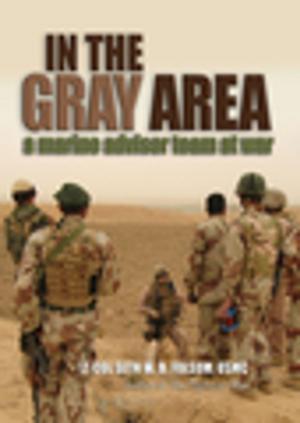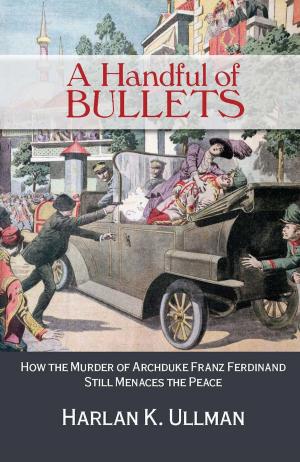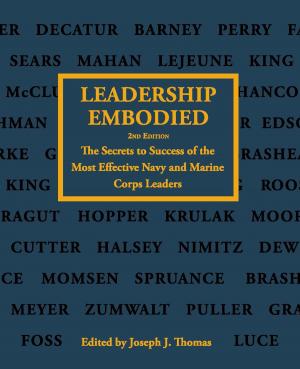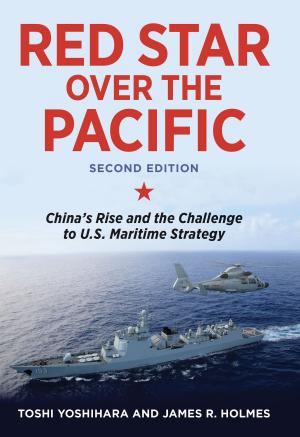Why Vietnam Matters
An Eyewitness Account of Lessons Not Learned
Nonfiction, History, Military, Vietnam War, Asian| Author: | Rufus C. Phillips III | ISBN: | 9781612515625 |
| Publisher: | Naval Institute Press | Publication: | December 4, 2013 |
| Imprint: | Naval Institute Press | Language: | English |
| Author: | Rufus C. Phillips III |
| ISBN: | 9781612515625 |
| Publisher: | Naval Institute Press |
| Publication: | December 4, 2013 |
| Imprint: | Naval Institute Press |
| Language: | English |
In The Best and the Brightest, David Halberstam described Rufus Phillips as a man one could trust telling President Kennedy during the Vietnam War about the failures of the Strategic Hamlet Program, 'in itself a remarkable moment in the American bureaucracy, a moment of intellectual honesty.' With that same honesty, Phillips gives an extraordinary inside history of the most critical years of American involvement in Vietnam, from 1954 to 1968, and explains why it still matters. Describing what went right and then wrong, he argues that the United States missed an opportunity to help the South Vietnamese develop a political cause as compelling as that of the Communists by following a big war strategy based on World War II perceptions. This led American policy makers to mistaken assumptions that they could win the war themselves and give the country back to the Vietnamese. Documenting the story from his own private files as well as from the historical record, the former CIA officer paints striking portraits of such key figures as John F. Kennedy, Maxwell Taylor, Robert McNamara, Henry Cabot Lodge, Hubert Humphrey, and Ngo Dinh Diem, among others with whom he dealt.
Phillips details how the legendary Edward G. Lansdale helped the South Vietnamese gain and consolidate their independence between 1954 and 1956, and how this later changed to a reliance on American conventional warfare with its highly destructive firepower. He reasons that our failure to understand the Communists, our South Vietnamese allies, or even ourselves took us down the wrong road. In summing up U.S. errors in Vietnam, Phillips draws parallels with the American experience in Iraq and Afghanistan and suggests changes in the U.S. approach. Known for his intellectual integrity and firsthand, long-term knowledge of what went on in Vietnam, the author offers lessons for today in this trenchant account.
In The Best and the Brightest, David Halberstam described Rufus Phillips as a man one could trust telling President Kennedy during the Vietnam War about the failures of the Strategic Hamlet Program, 'in itself a remarkable moment in the American bureaucracy, a moment of intellectual honesty.' With that same honesty, Phillips gives an extraordinary inside history of the most critical years of American involvement in Vietnam, from 1954 to 1968, and explains why it still matters. Describing what went right and then wrong, he argues that the United States missed an opportunity to help the South Vietnamese develop a political cause as compelling as that of the Communists by following a big war strategy based on World War II perceptions. This led American policy makers to mistaken assumptions that they could win the war themselves and give the country back to the Vietnamese. Documenting the story from his own private files as well as from the historical record, the former CIA officer paints striking portraits of such key figures as John F. Kennedy, Maxwell Taylor, Robert McNamara, Henry Cabot Lodge, Hubert Humphrey, and Ngo Dinh Diem, among others with whom he dealt.
Phillips details how the legendary Edward G. Lansdale helped the South Vietnamese gain and consolidate their independence between 1954 and 1956, and how this later changed to a reliance on American conventional warfare with its highly destructive firepower. He reasons that our failure to understand the Communists, our South Vietnamese allies, or even ourselves took us down the wrong road. In summing up U.S. errors in Vietnam, Phillips draws parallels with the American experience in Iraq and Afghanistan and suggests changes in the U.S. approach. Known for his intellectual integrity and firsthand, long-term knowledge of what went on in Vietnam, the author offers lessons for today in this trenchant account.















